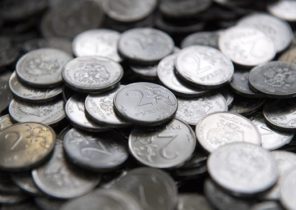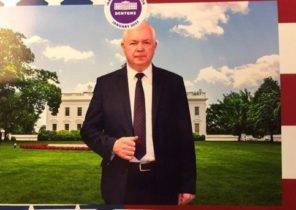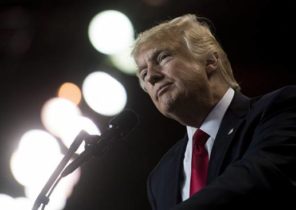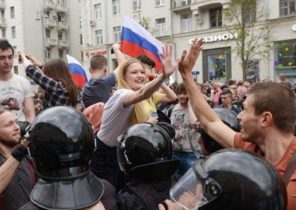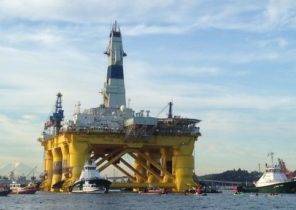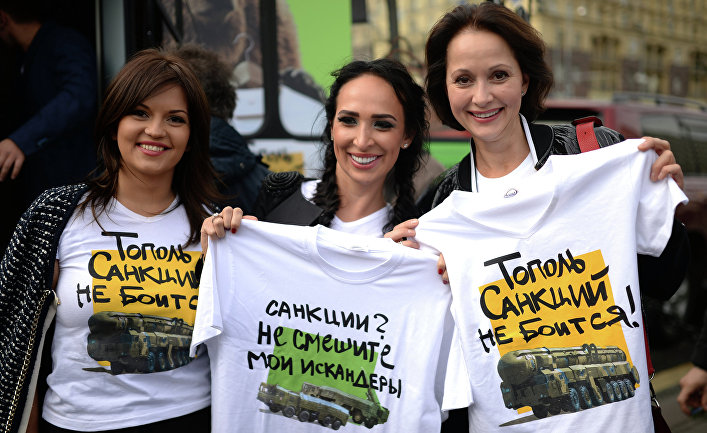
Even official Kyiv reluctantly admits that the geopolitical situation is changing for Ukraine not for the better. New realities create new rules. As a result, Ukraine is becoming a hostage to processes that have a minimal impact.
The big danger is that anti-Russian sanctions of the European Union and the United States will not survive the year 2017. Or will not survive in its current form. At certain coincidence fortunate for the circumstances that can be avoided. But the script is removing or easing sanctions this year too probable to ignore.
Back in September of last year, our sources in the presidential administration of Ukraine said: there are big doubts that in December the EU will extend sanctions. Then into the hands of Kiev played an international report on the crash of MH17 and the Syrian adventure of the Kremlin, which caused severe irritation of the West. But there is no guarantee that the stars will converge this time.
“Explorer” has compiled the top 5 reasons why Russia could be lifted this year.
The French stalled
The upcoming presidential election in France, scheduled for spring, raise concerns not only in the context of sanctions. Under the question — “Norman” format, a visa-free regime (if the EU will not give him up to that time), and the European integration of Ukraine.
The two leaders of the election race, Francois Fillon and marine Le Pen publicly oppose the renewal of sanctions. France is one of the most influential countries-members of EU. Sanctions are to this day largely because of the sanctions of the coalition of Paris and Berlin. If one of the “pillars” will collapse, probably collapsing and the whole structure.
To this we must add that the extension of sanctions requires a unanimous vote of the EU countries, the so-called consensus. In fact, to block sanctions, Paris suffice it to say uncompromising against.
Critical mass
The problem is not only in France. Critical mass is unhappy with sanctions in the EU is growing steadily. Them has long been not happy with Italy, Greece, Bulgaria, Hungary, Slovakia, Cyprus and Austria. Official Vienna, for example, favoured a gradual lifting of sanctions, turning them from the “system of punishment in the system of promotion”. The newly elected President of Bulgaria, rumen Radev, and not exchanged for diplomatic wording, promising to achieve the lifting of sanctions.
To take place in March and parliamentary elections in the Netherlands. There is a chance of victory of the euroskeptic freedom Party under the leadership of Geert Wilders. This force vehemently in favor of lifting the sanctions.
Separately the positions of these countries would not affect the consensus in the EU. But the amount they can tip the scales in favor of Russia.
The strongest weak ally
The last word in the EU still remains in Berlin. Ukraine can be a lot of claims to German Chancellor Angela Merkel, however, it was and remains the main engine of the sanctions policy and the most powerful ally of Kiev in the European Union. But in September there will be elections to the Bundestag. The situation is not as critical as in France. Judging by the results of the latest opinion polls, Merkel has good chances to retain the post of the Chancellor (although the elections are still more than six months, and the situation may change dramatically).
And yet, even if Merkel manages to stay in power, the opposition thereto will substantially increase. The rating eurosceptic party “Alternative for Germany”, which called for the lifting of sanctions is increasing. In the regional elections the elections showed good results, while Merkel’s party is pretty weak. If the “Alternative for Germany” enters the Bundestag with a large number of seats, Merkel will not be able to ignore them. The Chancellor will have to adjust your course, perhaps to the detriment of Ukraine.
American dark horse
The US President Donald trump has repeatedly made it clear that he supports the normalization of relations with Russia. He also allowed the revision of the sanctions. Since the last such statements, much water has flowed. Trump has become more cautious in their rhetoric on Russia. Largely due to the scandals of Moscow’s interference in American elections and Goldengate (report that the Kremlin has dirt on trump). But this does not mean that the idea is to improve relations with Moscow, including through the lifting of sanctions, forgotten. For example, shortly before the inauguration of the trump started talking about a deal to reduce nuclear weapons in exchange for sanctions relief.
The main deterrent trump factor in the normalization of relations with the Kremlin and Congress. Democrats and a significant number of Republicans will do a lot to prevent this. And in the team of the trump, there are people (Vice President, the Secretary of defense, the CIA Director and others) that do not support a dramatic rapprochement with Russia. Because of the explosive political situation in the Russian direction the White house is unlikely to take radical steps in the near future and will choose the tactics of gradual smoothing of contradictions. Given a certain eccentricity and unpredictability trump, it is possible that over time the parties come to some agreement that will address the sanctions question (minimum penalties for cyber-attacks).
But even if the U.S. restrictions because of the political situation yet continues, one thing is clear: Trump is not interesting single transatlantic sanctions front. The United States since Barack Obama put a lot of effort to convince European partners of the expediency of extending sanctions. The role of Washington that the EU sanctions are still in force, should not be underestimated. But trump such efforts to expect it is naive.
Minsk vicious circle
The talks in Minsk “Norman” format has long been moving in a circle. The prospect of creating a “road map” of the Minsk agreements illusory. The West would have sighed with relief if Ukraine went to “painful compromises” that are contrary to its national interests.
States times trump the Ukrainian direction is not interesting, Europe is simply not up to it. The lack of progress in negotiations, propaganda Russia accused Ukraine of “intransigence”, the dubious successes of Kiev in the field of reforms and fighting corruption, isolationist tendencies in the United States and the EU — all of this gives rise to a strong fatigue of the West from the Ukrainian crisis in General and sanctions in particular.
As reported by “observer”, the PACE President wants to lift sanctions against Russia.
